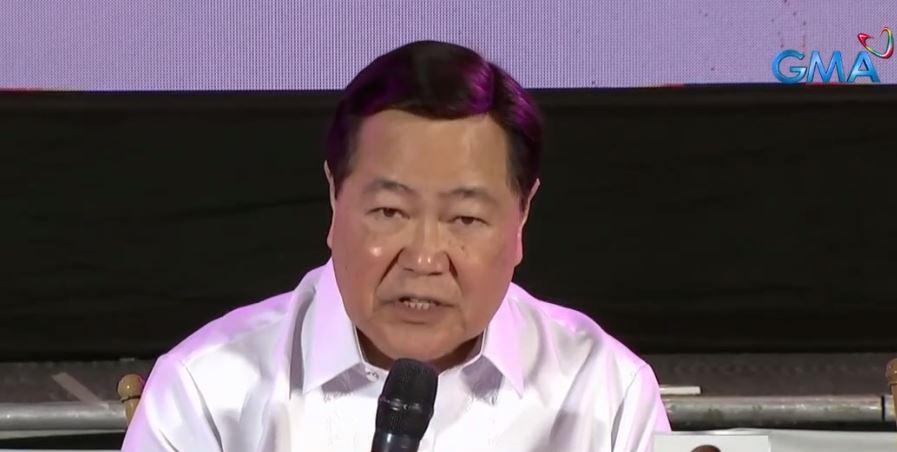Retired Supreme Court Senior Associate Justice Antonio Carpio warned Saturday that pursuing Charter change through the ongoing people’s initiative (PI) could lead to a constitutional crisis.
Carpio expressed belief that the current people’s initiative undermines the system of checks and balances.
“Because if you remove the Senate, you disregard the check and balance in the present Constitution, and that’s a crisis, a constitutional crisis. Why did you set aside the Senate? You disregarded it when there is supposed to be a check and balance,” Carpio said.
Carpio added that although there is no law that can prevent a people’s initiative, it is likely that one of the main issues to be raised will be whether or not the requirements for the gathering of public signatures have been met.
He said, “There is no law that can stop it, but you can go to the Supreme Court if it violates the previous rulings of the Supreme Court. In the [2006] Lambino [versus Commissions on Elections] case, there are two requirements: the gathering of transparent signatures and a full disclosure of the exact provision proposed to be approved by the people. These must be included on the signature page.”
Based on how the current people’s initiative is being pushed forward, Carpio said that determining whether a proposed change is an amendment or revision will be among the main issues to be discussed if and when it is brought before the Supreme Court.
“In my opinion, based on the Lambino case, when you alter the checks and balances in the legislature, that is a revision, not a simple amendment. So, in my simple opinion, the proposed amendment of this particular people’s initiative is a revision, and this issue will be raised to the Supreme Court. That will be the sole issue there,” Carpio said.
Carpio suggested that because the 1987 Constitution is being discussed, the voting on amendments should be separate for the Senate and the House of Representatives, similar to the process for passing ordinary laws.
“We’re talking about the highest law, and there should be a similar check and balance whereby one chamber cannot fully approve it while disregarding the other. Both chambers must approve it. Now, this proposal means that if it is passed, it is only the House that can override, overrule, or disregard the Senate. There is no check and balance,” Carpio said.
He agreed with the suggestion of some senators to simply insert the proposed laws related to foreign investments into the existing laws, which he said could be changed, if necessary.
“We can just insert the proposal of the Senate. I’m speaking personally, unless otherwise provided by law, subject to reciprocity, and subject to a two-thirds vote of both the House and the Senate,” Carpio said.
Asked if that approach was better than “changing everything,” Carpio replied, “Oh yeah, the present proponents of people’s initiative say they just want to change the economic provisions. Well, if you want to change the economic provisions, go straight to it! Why go around in circles? Two steps! You want to change the voting of the constituent, then you meet again to change the economic provision. You can go straight to it, so there is a suspicion, why go two steps? Maybe you want to change something else?” — VDV, GMA Integrated News

















